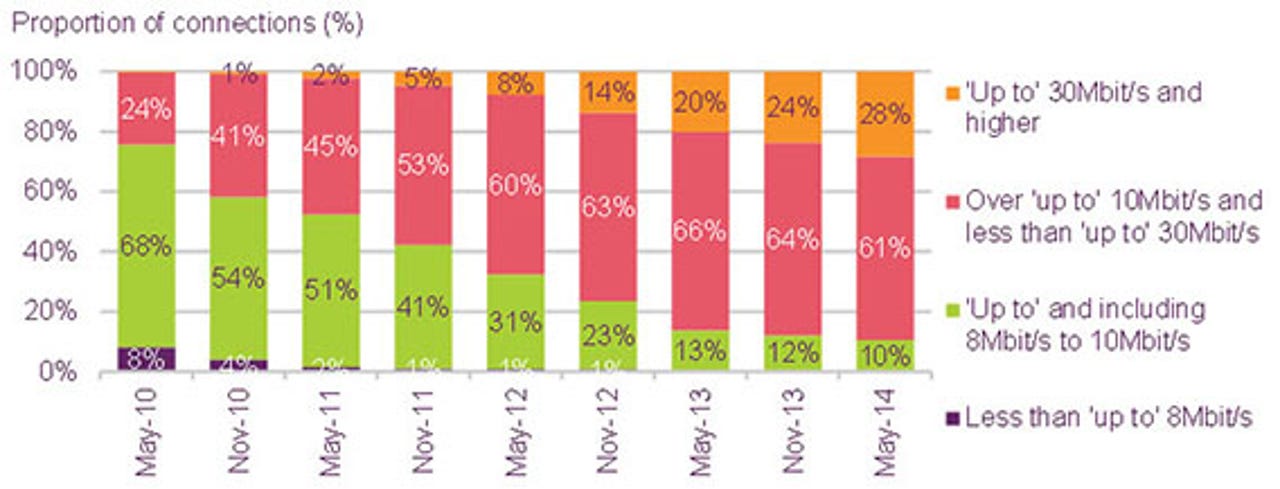Cable overtakes fibre in Ofcom's report on UK broadband speeds

Average cable broadband speeds have overtaken fibre for the first time, according to Ofcom research covering the six months to May 2014. However, the difference isn't significant. Ofcom says the average speed of cable broadband reached 43.3Mbps compared to 42.0Mbps for fibre.
The average speed for all residential connections was 18.7Mbps, a 5 percent increase on November 2013.
Why the change? Fibre speeds are typically close to 38Mbps or 76Mbps, depending on which version — 40 or 80 meg — is purchased. Ofcom says an increase in 40Mbps connections and a slight decrease in the average speed of 80Mbps connections brought down the average speed of fibre connections. The 80Mbps connections had an average speed of 62Mbps.
Meanwhile, cable company Virgin Media launched a superfast "up to 152Mbps" service in February 2014. Ofcom says this achieved "the fastest download speed over a 24 hour period, averaging 141.9Mbps".
In the UK, "fibre" is almost always "fibre to the cabinet" (FTTC) as used in the BT Infinity service, not fibre to the premises (FTTP). Virgin uses a mixture of fibre and coaxial cable.
Ofcom also reports that Plusnet’s "up to" 76Mbps package delivered the fastest average upload speed: 17.1Mbps.
Their average speeds of UK users with ADSL2 connections increased by 0.7Mbps (10 percent) to 7.4Mbps during the six months.

Rural users also get slower speeds than urban users, but Ofcom says "the gap … could be narrowing". According to the new research, rural customers' speeds increased by 20 percent to 13.6Mbps while urban and suburban speeds increased by 5 percent to 33.4Mbps and 22.9Mbps respectively. However, rural users still suffer more from contention problems at peak times.
Welcoming the report, Digital Economy minister Ed Vaizey touted the success of the BDUK project to increase broadband speeds in rural areas. He said: "I’m delighted to say that these findings, whilst fantastic news, are not unexpected. Government has taken access to superfast broadband speeds to more than 1 million homes and businesses across the UK through our nationwide rollout, which has been instrumental in average speeds increasing by more than 3 and a half times since May 2010."
The numbers are based on "2.7 billion separate test results recorded in 2,175 homes during May 2014" monitored by SamKnows. The research covered the seven largest ISPs by subscriber numbers. Other ISPs may be faster, or slower.